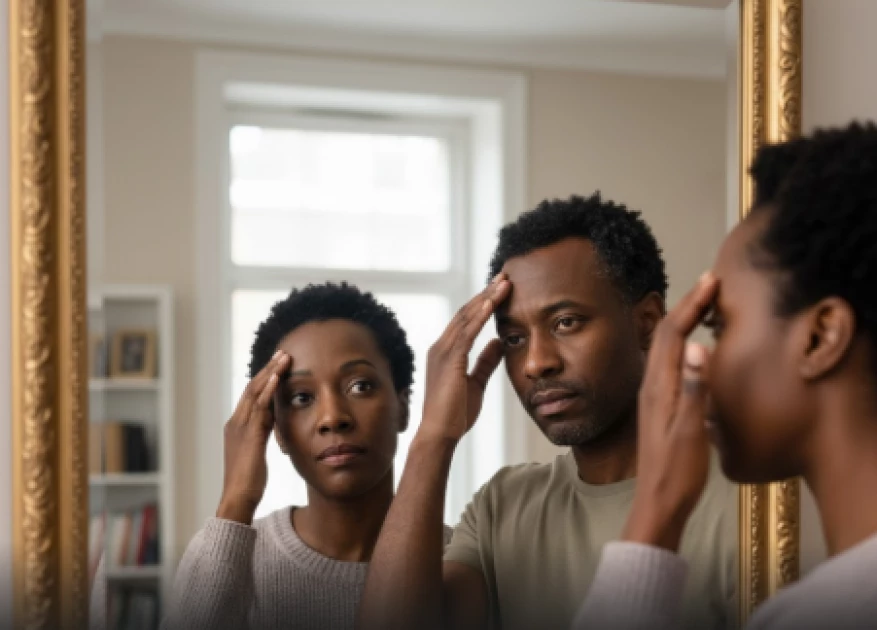Receding hairline: Why your frontal hair keeps disappearing and what to do


Audio By Vocalize
Receding hairlines is an issue that has affected so many people worldwide that the social stigma around it is less.
What was once an embarrassing factor has become a concern as many people, young and old, male and female, all seek out to find a solution in pursuit of better hairline that does not have them looking like Jet Li in his Kungfu movies.
Dengco is a 22-year-old IT student who considers a receding hairline not only a taint to his godly features, but an abomination as well.
“It was a while back in form 3. I was wearing a marvin during day time since the scalp doesn’t have breathing room. I exercised a lot and ate rich food that stimulate hair growth. Plus, I used minoxidil,” he narrates.
His hair would grow back in four months. And to him, it was worth the wait.
Dr. Aura Melvin is a dermatologist who specializes in bringing your illusion beauty to reality.
According to her, hairlines can affect anyone regardless of age and gender.
While men are the most affected, young people are also at risk. She further explains that it can be caused by genetics, hormonal imbalance, trace and lifestyle factors, not forgetting medical conditions such as cancer.
“The only way to differentiate the cause of hair loss is by identifying the characteristics of the specific type of hair loss. Genetic type of hair loss usually happens gradually, and it's predictable as it runs in the family. As for hormonal hair loss, it's linked to hormonal fluctuations or conditions or treatments such as Polycystic Ovarian Syndrome (PCOS). It could be postpartum, high levels of dihydrotestosterone as well as part of birth control methods. Basically, anything that can affect your hormones,” Says Dr Aura.
She also cites lifestyle habits such as smoking, stress and use of harsh products as a cause of hair loss.
“Receding hairlines are common occurrences in women. I have experienced it. l applied chemical on my hair. l actually thought it would maintain my hair instead it damaged my hairline. I stopped applying chemicals and let my natural hair grow. Yes, I freaked out because it's quite disturbing not to have a hairline. To maintain my hair, l plait regularly and avoid staying with unplaited hair,” says Vanessa, a 22-year-old lady, who believes hairlines are essential in increasing physical beauty standards.
Who said girls don’t consider their hairlines when getting a shave?
Margaret is a young journalist who perceives long hair as the one ingredient to a higher class of beauty standards, and is unbothered by cutting it.
“Nikienda kinyozi I avoid front cuts, because it can damage my hairline. Rather have a side cut or back one,” says Margaret.
“Hairstyle also matters. I go for the box, or rather a modern one. But always make sure it doesn't involve the front cutting. So with 'box' hairstyle only the sides are affected. The front styles remain the same way and I get to maintain my hairline,” she says.
With so many myths and misconceptions surrounding receding hairlines, most people end up with the wrong reasons for their hair loss and the wrong approach to curb the issue.
According to Melvin, many people have the false belief that it only affects old people, and it is only females who are affected.
“Now, on the contrary, it actually affects men more as compared to women. Another one is that cutting hair makes it grow stronger and longer. And to debunk that, actually, whatever causes the hair loss is what needs to be addressed,” she states.
Melvin adds that most men believe nothing can be done about receding hairlines.
“Of course, there are so many treatments that are available. It includes hair PRP, which is the use of platelets to manage that. And then there's also treatments like minoxidil. We also have hair transplants in the market. We have protein protein-rich diet and supplements with biotin, iron, zinc, and even vitamin D. Use of natural products does not necessarily reverse hair loss, but they help strengthen the follicles. They also help to improve scalp health and thus they bring back the hair,” she says.
The dermatologist also proposes natural remedies like rosemary oil, castor oil, coconut oil, aloe vera and even scalp massage, which help to improve the situation.
“And in that case, we try to avoid tight hairstyles, use of harsh chemicals and even manage stress as well as sleep. The types of hairstyles that need to be moderated to prevent traction alopecia include burns, cornrows, braids, ponytails and hair extensions that pull the scalp tightly.”
She also recommends scalp hydration as it helps prevent brittle hair follicles.
She went on to urge those experiencing hair loss to consult a dermatologist or identify the cause, so it's easier to find a suitable treatment for it.
“In our case, depending on the severity of hair loss, we're able to settle on using either topical or injectable treatment, and in most cases, we settle on using platelets rich plasma, abbreviated as prep. And generally, I would say it gives a very good result after, usually, it's recommended at least,” she says.


Leave a Comment